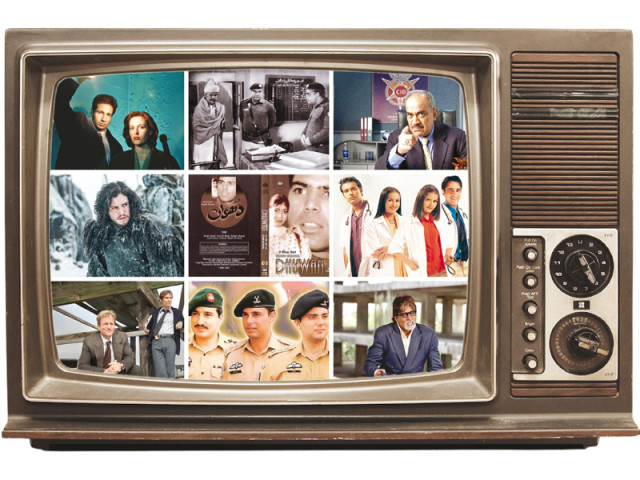Serial killer I: Why TV series are not being produced in Pakistan
Local television remains unable to adapt to the TV-series format despite continued success with TV serials

Pakistani television has finally arrived on the world map. That is not to say that Pakistani dramas weren’t being watched elsewhere before on DVDs and YouTube. But with the Indian market legally embracing local content, multiple new avenues can now be tapped into by Pakistani producers. The trend of watching foreign television series has also gained popularity concurrently. Characters, such as Tyrion Lannister, and actors the likes of Bryan Cranston have become household names for netizens.
But despite the availability of many privately-owned entertainment channels in Pakistan, audiences have yet to see modern-day local TV series. According to screenwriter-actor Vasay Chaudhry, the reason why the idea of a series has never picked up in Pakistan is partly due to the reluctance of producers and channel executives to venture into unknown territory.
“Channels don’t ask for such content but, despite that, foreign television series, such as Game of Thrones, House of Cards and True Detective are popular among Pakistani audiences. So, there is no doubt that a good Pakistani TV series would also rivet the audiences’ attention,” says Vasay, writer of the popular TV serial Jackson Heights.
Contrarily, actor-producer Azfar Ali, who is the writer of the popular sitcom Sab Set Hai and its sequel Ab Set Hai, holds that television in Pakistan has become a slave to established formats and genres, with the same sort of TV serials being made one after the other. “Right now, we are not doing anything other than social drama on television. Every TV serial highlights themes, such as early pregnancy, divorces and extra marital affairs,” he comments.
“In repeating the same formula again and again, channels have inadvertently shut down all avenues of innovation. The idea that women are the only ones who watch television is ingrained in their minds, so they only produce content that caters to women,” he adds.
Azfar feels this fertile second phase in Pakistani television’s new golden age is testament to the fact that the only rule producers seem to be following is giving preference to ‘cast over concept’. “Channel executives believe that it is the cast and not the concept that ensures the series’ success. Plus, it is easier for them in terms of marketing. But this is not entirely true as Sab Set Hai proved otherwise with a completely unknown cast,” he shares.
However, producers working in entertainment channels believe that one of the reasons why Pakistan has been unable to adapt to the TV series format is due to the vast differences in cultural dynamics. “For a country that has melodrama at the heart of its cultural psyche, we will need to make series, which are true to our roots and innovative at the same time,” states Taqi Shaheen, senior producer at Express Media Group. He further says, “A common misconception is that television is an intelligent medium. It is nothing like that. TV is a popular and laid-back medium that audiences watch as a relieving point.”
Disclaimer:
Serial killer is a two-part series of stories in which actors, writers, producers and channel executives will comment on the dearth of TV series in the country.
Published in The Express Tribune, November 10th, 2014.
Like Life & Style on Facebook, follow @ETLifeandStyle on Twitter for the latest in fashion, gossip and entertainment.



















COMMENTS
Comments are moderated and generally will be posted if they are on-topic and not abusive.
For more information, please see our Comments FAQ